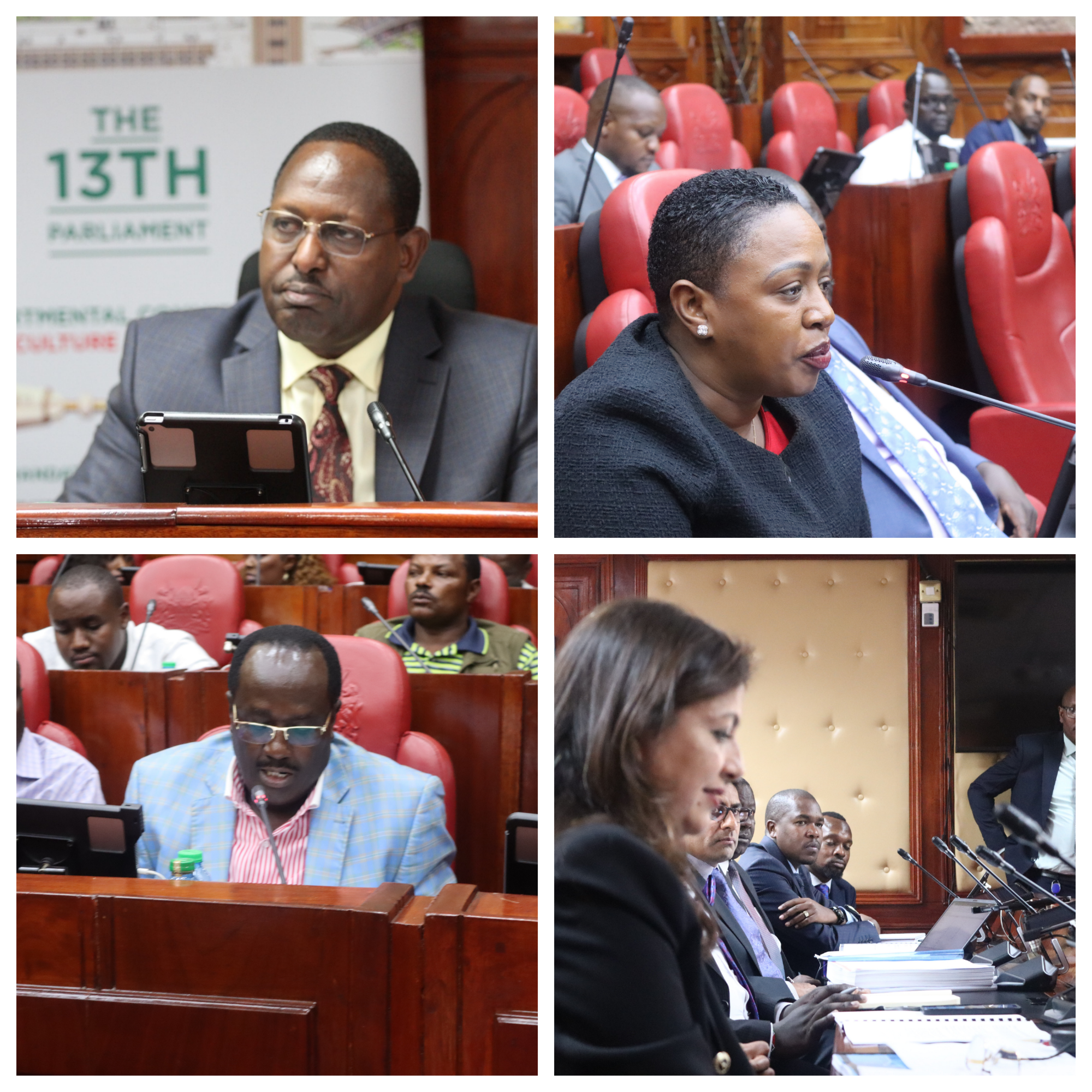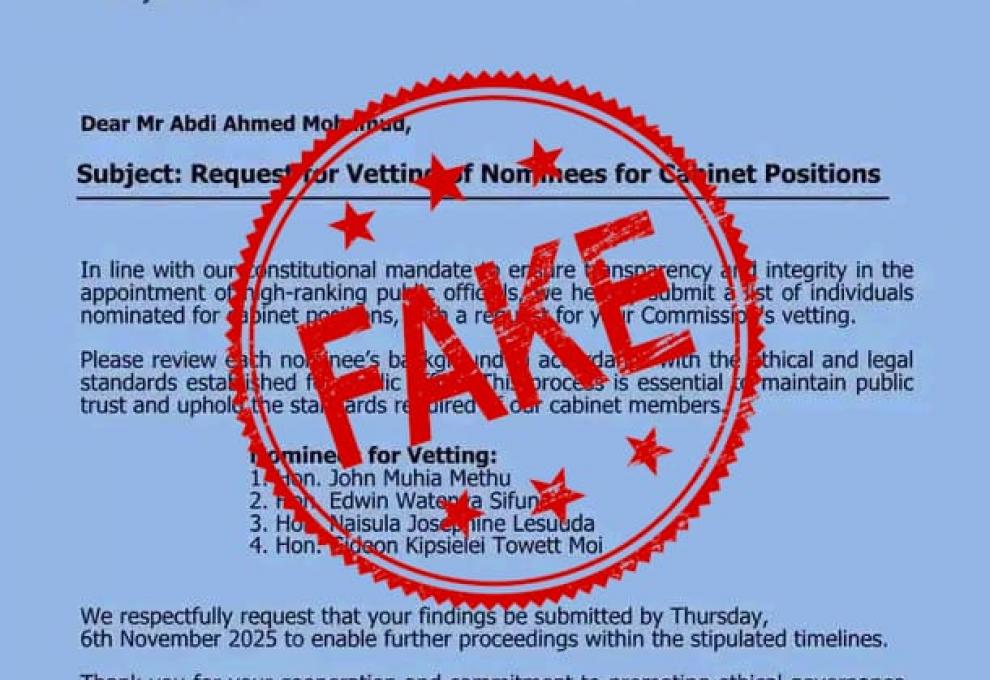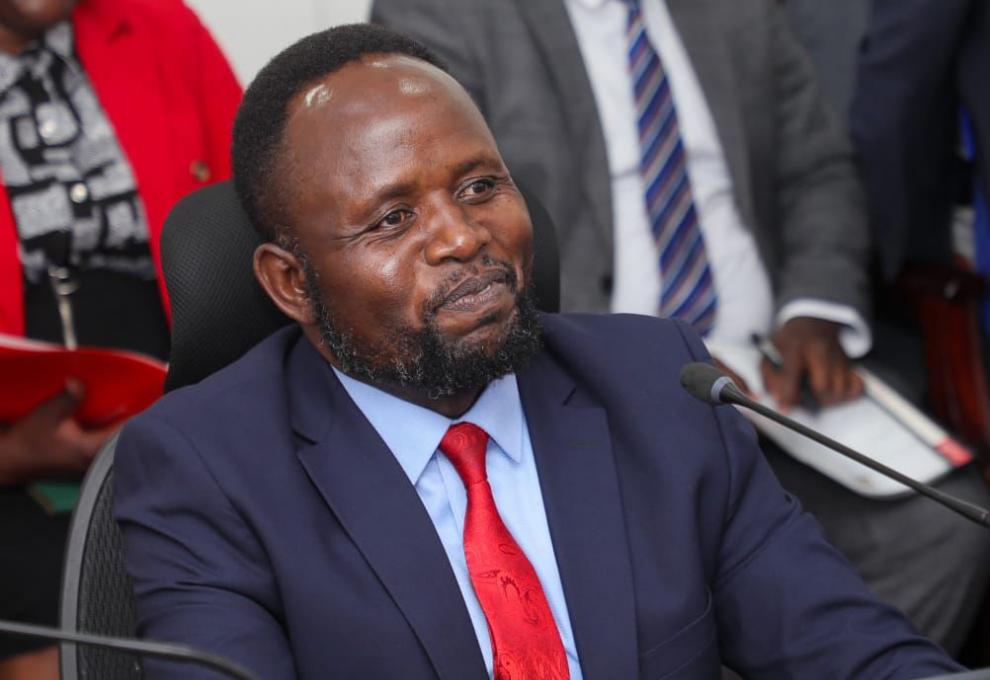LAWMAKERS CONDUCT INQUIRY INTO THE MAIZE SUBSIDY PROGRAMME
Lawmakers have launched an inquiry into the maize subsidy programme. This follows the consideration of Supplementary Estimates 1 by the National Assembly Committee on Agriculture and Livestock chaired by Hon. Dr. John Mutunga.
Members observed that Kshs 7.267B had been spent on the Maize flour subsidy programme of which 4B was paid and 3.267B not yet paid. The Committee had reservations about the Programme due to lack of sufficient information.
The Committee on Agriculture and Livestock chaired by Hon. Dr. John Mutunga scrutinized submissions presented by the Cereal Millers Association led by their CEO Mrs. Paloma Fernandez and the Grain Mill Owners Association chaired by Mr. Kennedy Nyaga on the details of the maize subsidy programme.
"Kenya consumes an average of 4 million bags of maize flour monthly that is 360,000,000kgs. The amount of maize flour supplied by the medium and small millers during the subsidy programme was 123,143,928kgs," said Mr. Kennedy Nyaga, Chairperson of the Grain Mill Owners Association.
The Cereal Millers Association highlighted that the price of a 90kg bag of maize rose from Kshs.3,000.00 in March 2022 to Kshs.6,500.00 in June 2022, leading to a surge in the cost of maize meal from Kshs.100 to Kshs.220 for a 2kg packet. To address the shortage of maize grain, the Millers Association proposed government intervention in inter-country trade to source raw materials beyond borders.
The meeting was informed that the Government removed the 50% import duty on non-GMO maize for three months until 6th August 2022 to stabilize food prices. However, Millers were not able to import white non-GMO maize grain due to the short period allowed for importation and a global shortage of white non-GMO maize, partly due to the Russian-Ukraine conflict.
"To alleviate the high cost of maize meal for consumers, the government implemented the Maize Subsidy Programme. The programme was open to all duly registered millers who signed individual contracts with the Ministry of Agriculture, Livestock, Fisheries and Cooperatives, including pricing and calculation of the subsidy, payment terms, and verification of sales," Mrs. Paloma Fernendez
Documents before the Committee revealed that the Government contracted a total of 129 Kenyan millers, including 29 members of the Cereal Millers Association, to cushion consumers against the high price of maize meal. However, the programme only covered the principal amount of Kshs.1.905 B leaving a balance of Kshs.2.589B owed by the Government to the millers for the supply of maize. This outstanding amount continues to attract interest under Article 4.2 of each miller's contract.
"Can you confirm whether the subsidized maize flour reached the consumer at the subsidized price, can you provide evidence?" Hon.Gabriel Kagombe
Representatives of the Cereal Millers Association were at pains to explain whether consumers were able to purchase the subsidized maize flour at the expected retail price of Kshs 100 and whether the end product actually got to consumers, "Unfortunately, I do not have access to any information on specific retail outlets that received the subsidized maize flour under the program. However, it is mentioned in the contract that the Government was responsible for monitoring the retail sales of the flour and ensuring that it was sold at the maximum recommended retail price of Kshs 100 per 2kg packet."
On his part the Chairperson of the Grain Mill Owners Association, Mr. Kennedy Nyaga informed the Committee that small and medium sized millers control up to 67% of the market share.
He further informed the meeting that the amount owed to medium and small scale millers is Kshs 399.55M exclusive of interest charged at the rate of 12%.
"We do not feel recognised by the government despite the gap we fill in counties across the country", added Mr. Kennedy Nyaga.
Representatives of the small and medium scale millers further admitted that their brands of maize flour which are available in rural areas are more affordable than the bigger brands that are based in urban areas.
Members of the Committee expressed concern with the packaging of subsidized maize. Members queried why the subsidies maize flour was not properly branded as such.
"How were citizens supposed to identify the subsidized maize flour
The Committee is awaiting for detailed written submissions from the Cereal Millers Association and is expected to have further meetings with stakeholders on the Maize Subsidy Programme in the coming weeks.
Members of the Committee present during the meeting were Hon. Dr. John Mutunga, Hon. Brighton Yegon, Hon. Sabina Charge, Hon. Jared Okello, Hon. Yusuf Farah, Hon. Gabriel Kagombe, Hon. David Kiplagat and Hon. Patrick Kibagendi Osero.
















